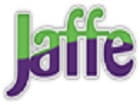Summary
- Atrion is a long-term value creator which has lost a third of its value over the past eighteen months.
- This correction should be seen in the light of the long-term share price developments, as the company continued to see steady growth.
- Momentum took share prices a bit too far in the years before, as valuations look close to fair now, while further dips would translate into a solid entry point.
- Looking for a helping hand in the market? Members of Value In Corporate Events get exclusive ideas and guidance to navigate any climate. Get started today »
Atrion (ATRI) surfaced on my radar this week as it is trading at its 52-week lows. This is quite remarkable given where markets trade these days, it is quite a noteworthy development for a medical device player.
The company is a very well-run small-capitalization firm which shows decent but not spectacular execution, creating a tremendous amount of shareholder value over time. It has and continues to operate with a strong net cash position, and has a very conservative capital allocation strategy. Instead of focusing on M&A, Atrion has a strong focus on internal and organic growth.
The Business - Where Are We Coming From?
Atrion is a relatively small medical products company as it manufactures products in certain niche segments including contact lens disinfection cases, clamps, vacuum relief valves, checked valves and products for minimally invasive surgery. Besides the medical division, the company furthermore produces valves and inflation devices for marine and aviation, among others. Applications typically involve safety products, among others.
The company claims that given the size of the business, scale is not a key strength, yet its customized solutions really are, helping customers with cost-effective solutions. The company has been doing this for a long time, as Atrion has been listed since the 1980s, and in that decade and the 90s which followed, shares mostly traded in a $10-20 range. Real share price advancements were seen in the 2000s with shares trading at $150 in 2010. Shares have seen another impressive run in the 2010s as shares hit a high of $900 in the spring of 2019, before now having sold off to $600.
Looking back a decade, Atrion generated $108 million in sales and in fact was a very profitable business with $30 million in operating earnings in the year 2010. Net earnings of $20 million translated into roughly $10 per share with a diluted share count of just over 2 million shares, with the company operating with a small net cash position. With shares trading at $150, this was just a small-cap with a $300 million market capitalization, trading at non-demanding multiples. After backing out substantial net cash, operating assets traded at 13 times earnings.
Fast forwarding a decade, we end up early 2020, as the company reported its 2019 results. Over the past decade no major corporate events took place as the news overview only shows the release of quarterly results and dividend hikes, with no M&A, restructuring or other corporate events having taken place.
Back To Now
In the decade since 2010, or actually a nine-year period, the company has steadily grown sales to $155 million, with revenues up at a compounded annual growth rate of around 4%. Operating earnings rose alongside sales growth as the company reported net earnings of nearly $37 million last year, amidst lower corporate tax rates and higher interest income. Amidst a small reduction in the share count to nearly 1.9 million shares, earnings came in at $20 per share.
This means that earnings per share have doubled between 2010 and 2019, yet shares rose a factor of 6 times, up from $150 in 2010 to $900 in 2018, although shares had already fallen to $700 early this year. A $100 million net cash position works down to more than $50 per share. With operating assets trading at $650 in February, Atrion traded at 32-33 times earnings based on an unleveraged balance sheet. This perhaps might be a bit steep for a company with 4% organic growth.
Since the outbreak of the Covid-19 crisis, shares have steadily lost ground and in fact currently trade at fresh lows around $600 per share. First-quarter revenue rose around 5% despite a late impact of Covid-19, as the second-quarter results (coinciding with the calendar year) revealed a similar percentage decline in sales, for obvious reasons.






